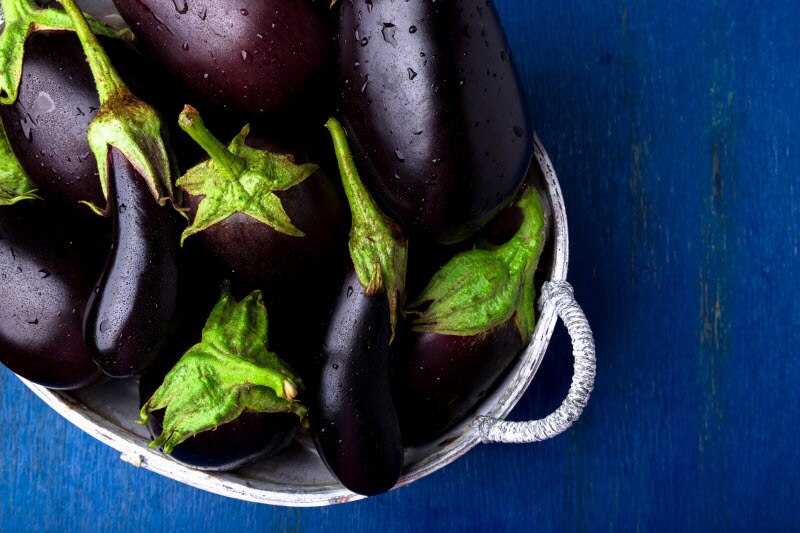Tomatoes, potatoes, peppers, eggplant—they’re all excellent for your health, aren’t they?
One would think. Yet, while these eats provide a host of nutritional benefits, they fall into the category of “nightshades”—a group of fruits and vegetables that have been associated with everything from migraines to exacerbated arthritis.
Read on to learn more about this collection of plants.

What are nightshades?
Nightshades are vegetables and fruits belonging to the
Solanaceae family—a cluster of flowering plants that yields 2,000 edible and non-edible products, including goji berries, pimentos, “red” spices such as chili powder, cayenne pepper and red pepper, and, yes, those aforementioned tomatoes, potatoes, peppers and eggplant.
Are nightshades bad for you?
As healthy and inconsequential as these foods may seem, many—from Tom Brady and Gisele Bunchden to dozens of medical experts—deem nightshades detrimental to the health of certain people.
This is because nightshades contain alkaloids—nitrogen-rich substances that are found in the stems, leaves and edible parts of the plant. One of these alkaloids, solanine—a natural pesticide in the
Solanacea family—is toxic in high concentrations; tobacco and Atrope belladonna, for example, are part of the nightshade family (and we’re all well-aware of the complications these two products present).
Indeed, while research on the impact these organic pesticides have on the human body is far from comprehensive, some
findings demonstrate they can pose issues for people. Why? The prevailing theory amongst some wellness experts is that these alkaloids contribute to
inflammation—the root cause of a number of health problems, including diabetes and heart disease.
Within all of this, though, rests both controversy and misunderstanding. As
Medical News Today reports, the leafy stalks of the potato plant and green potatoes are toxic, yes, but the potatoes we normally ingest contain only trace levels. Meanwhile, scientific evidence on the association between nightshades and inflammation is, thus far, scant. What’s more, eggplants, tomatoes and peppers do
not contain solanine, and yet many people say these foods make them feel ill and can trigger digestive and other problems. Some health experts assert that whatever negative consequences one might have to nightshades is due not to the composition of the plant and the alkaloids they do and do not possess, but to a person’s own food intolerances.
Nonetheless, many claim that removing nightshades from their diet made them feel tremendously better, and one
small study showed the link between potatoes and digestive distress. Whether this is, again, because of nightshades themselves, a food sensitivity, or another imbalance in the body is “patient-specific,” registered dietician Ryanne Lachman told the Cleveland Clinic. “If nightshades are a trigger for inflammation, it’s typically a message that there is an underlying imbalance perpetuating chronic, low levels of inflammation, and nightshades are just fuel for the fire.”
So: Should I cut nightshades out of my diet?
That depends. Many who work in holistic medicine suggest that people with inflammatory or autoimmune conditions such as arthritis or IBD shun (or limit) their consumption of nightshades. (Keep in mind, however, that this recommendation is based on anecdotal evidence.) Additionally, some experts believe that consuming 200 mg-400 mg of the alkaloids present in some nightshades is enough to make one feel sick—but one would have to eat
gobs of these plants to ingest that many milligrams.
Furthermore, many nightshades are jam-packed with vitamins, minerals and phytonutrients. Bell peppers brim with vitamin C, for example, eggplant is high in vitamin K, and tomatoes contain hefty amounts of lycopene—a compound that’s been linked to a decreased risk of certain types of cancer (including
lung cancer). Meaning, the best way to discover if nightshades should be abandoned is through a food diary and/or an elimination diet, and to paying close attention to your body’s response. Which brings us to our next point:
What are the symptoms of nightshade intolerance?
Anecdotally, adverse side effects to nightshades include painful joints, diarrhea, gas, bloating, headaches and depression. Should you experience any of these symptoms, consider turning to a medical professional who can help you determine your
food allergies and intolerances.
Are there any other nightshade vegetables?
In addition to the tomatoes, eggplant, potatoes and peppers previously mentioned, nightshade vegetables (and fruits and herbs) include ashwagandha, cape gooseberries, curry powder, golden huckleberries, pimentos and tamarillos. Nightshades are also found in several condiments, including ketchup, hot sauce, many steak seasonings, and BBQ sauce.
Are sweet potatoes nightshades?
Contrary to popular belief, sweet potatoes are
not nightshades. Rather, yams belong to the bindweed (or morning glory) family.
What should I eat if I do have to remove nightshades from my diet?
If you choose to omit nightshades from your eating regime, rest assured that there are plenty of ways to continue satisfying both your nutritional requirements and your taste buds. In lieu of a typical, tomato-based spaghetti sauce, use
olive oil and cracked black pepper. Exchange those tomatoes in your sandwich or on your salad for health-boosting bean sprouts. Make
sweet potato fries instead of French. And if you’re craving eggplant parm, all you have to do is swap the star ingredient for zucchini—which, rich in potassium and riboflavin, is more than a fair trade.





